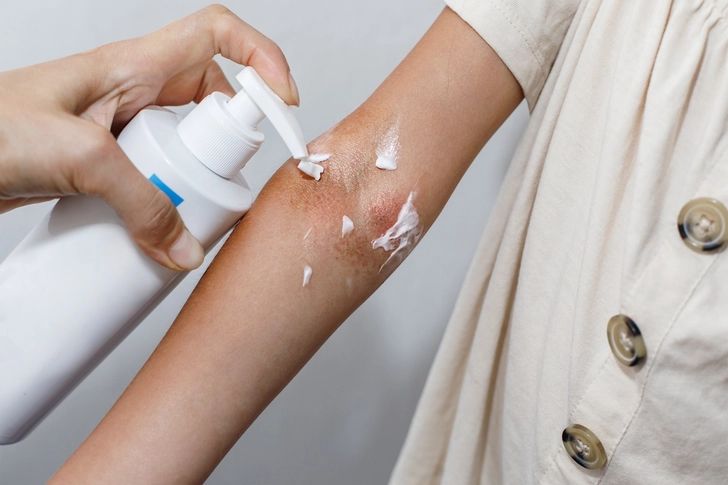- Overview
- Flares & Triggers
- Causes & Risks
- Types
- Locations on the Body
- Tests & Diagnosis
- Treatment
- Living With
- Complications
- Appointment Prep
- View Full Guide
Psoriasis in Older Adults


Aging With Psoriasis: What to Expect
As you age, you may have to change the way you manage your psoriasis. Your skin becomes thinner and more sensitive, which may change how your treatments work. Hormonal changes can impact psoriasis symptoms, and you may develop other health conditions that can affect your treatment. Work with your doctor to adapt your care plan as needed.

Adjusting Topical Treatments
Topical treatments such as steroid creams or topical vitamin D are safe for older adults, but they may cause new side effects when used on older skin. You might need to use them less often or switch to gentler alternatives. Tell your doctor if you notice purple spots on your skin, if you skin looks transparent, or if you notice signs of infection, such as redness or areas that are warm to the touch.

Medication Changes and Considerations
As you age, medications may work differently in your body. You may have to start taking a different dose of certain psoriasis medications, like methotrexate. Your doctor may need to check your liver and kidney function more often. You might need to stop using biologics. Experts recommend that people over 65 use biologics only if no other treatments work. That's because they can cause kidney problems and increase your risk of infection.

Watch for Other Conditions
Having psoriasis boosts your risk of many other age-related conditions. Watch for symptoms of common health problems linked to psoriasis, including heart disease, type 2 diabetes, bone loss, and metabolic syndrome. About 30% of people with psoriasis get psoriatic arthritis, a condition that causes stiff and swollen joints, fatigue, and other issues. Controlling your psoriasis through treatment and a healthy lifestyle can make you less likely to get related health conditions.

Skin Cancer Prevention
People with psoriasis, especially those who've undergone light therapy, may have an increased risk of skin cancer. This risk can be higher in older adults due to a lifetime of sun exposure. Make sure to get regular skin checks. Watch for changes in your skin, including new growths or changes in existing moles. Use broad-spectrum sunscreen daily, wear protective clothing, and limit sun exposure, particularly during peak hours. Tell your dermatologist if you have had phototherapy so they can monitor your skin more closely.

Antiaging Products and Psoriasis
Since you have psoriasis, you already know to be careful about which products to use on your scalp and skin. Be especially cautious about products labeled "antiaging," as they may contain ingredients that can irritate your skin. Avoid retinoids, chemical peels, dermabrasion, and laser procedures when you are having a flare-up. Choose alcohol-free products. Alcohol can dry out your skin and may contribute to psoriasis plaques. Pick lotions with ceramides, lipids, and hyaluronic acid. These natural moisturizing ingredients can soften your skin and lessen the appearance of psoriasis scaling.
PHOTO CREDENTIALS
Slide 1 - Véronique Burger/Science Source
Slide 2 - Pavlova Yuliia/Shutterstock
Slide 3 - Prostock-studio/Shutterstock
Slide 4 - Puwadol Jaturawutthichai/Shutterstock
Slide 5 - RossHelen/Shutterstock
Slide 6 - Ground Picture/Shutterstock
SOURCES
Acta Dermato-Venereologica: “Use of Aspirin, Nonsteroidal Anti-inflammatory Drugs, and Acetaminophen (Paracetamol), and Risk of Psoriasis and Psoriatic Arthritis: A Cohort Study.”
Dermatology: “Managing Psoriasis in the Elderly.”
International Journal of Dermatology: “Clinical study of psoriasis occurring over the age of 60 years: is elderly-onset psoriasis a distinct subtype?”
American Academy of Dermatology Association: “How to Treat Psoriasis at Age 65 and Beyond.”
Arthritis Today: “Biologics.”
Shari Lipner, MD, PhD, dermatologist, Weill Cornell Medicine and New York-Presbyterian Hospital, New York City.
Indian Journal of Dermatology, Venereology and Leprology: “Linking of psoriasis with osteopenia and osteoporosis: A cross-sectional study.”
National Psoriasis Foundation: "Health Conditions Linked to Psoriasis.”

